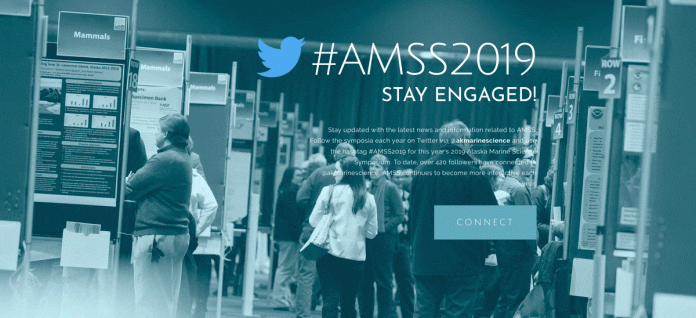Earthquakes, tsunamis, changing oceans and the scientific legacy of the Exxon Valdez oil spill disaster will be the topic of keynote speakers on the first day of the 2019 Alaska Marine Science Symposium, set for Jan. 28 through Feb. 1 in Anchorage.
Research geologist Peter Haeussler of the U.S. Geological Survey will address earthquakes and tsunamis of southern Alaska and their relationship to the 7.0 earthquake that shook the Anchorage area and beyond on Nov. 30, causing millions of dollars in damage.
Haeussier’s current research focuses on understanding active tectonic processes in southern Alaska, with studies on the frequency of earthquakes, the location and rate-of-movement of active faults, and mountain building.
Richard Thoman, who recently retired as climate science and services manager for the National Weather Service Alaska Region, will discuss how oceans are changing, warming water and decreasing sea ice already generating cascading impacts to the biology, and the larger climate and environmental system for which scientists have only a limited understanding. His talk will review some of the ongoing changes in oceans around Alaska. Thoman is currently working as a climate specialist with the Alaska Center or Climate Assessment and Policy.
The topic of discussion by Jeff Short, now retired from the National Oceanic and Atmospheric Administration, will be the scientific legacy of the Exxon Valdez oil spill of 1989, which polluted thousands of square kilometers of sea surface just before the migration of thousands of birds, mammals and fish who reproduce in the Prince William Sound area and beyond.
During his 31-year career as a research chemist at NOAA Short worked primarily on oil pollution and other contaminant issues. He was the lead chemist for the governments of Alaska and the United States for damage assessment and restoration phases of the Exxon Valdez disaster.
Also, among the keynote speakers will be Jude Isabella, editor in chief of Hakai Magazine, an online publication focused on coastal science and societies produced by the Hakai Institute, part of the Tula Foundation in British Columbia. Isabella has been a science journalist for over 25 years. She launched Hakai Magazine as an online publication in 2015.
More information on AMSS 2019 is online at www.alaskamarinescience.org.















